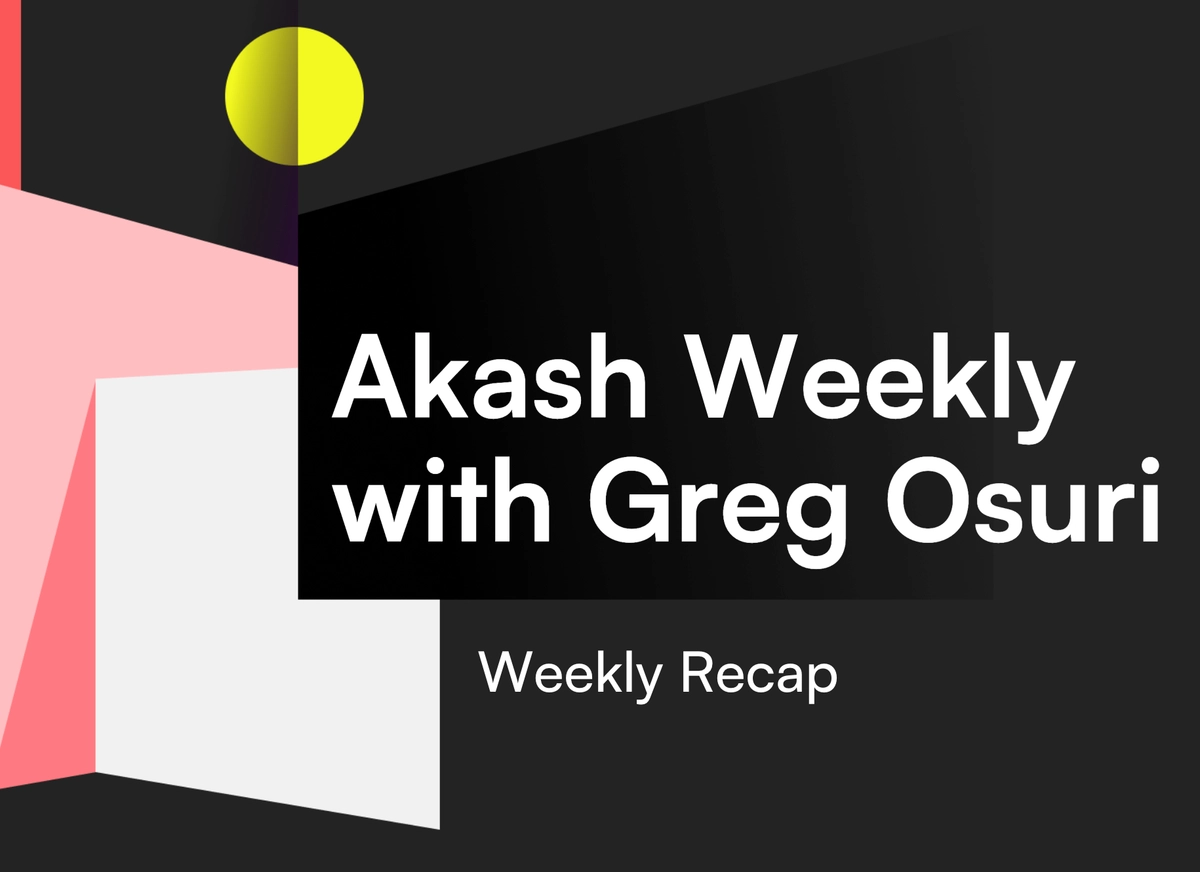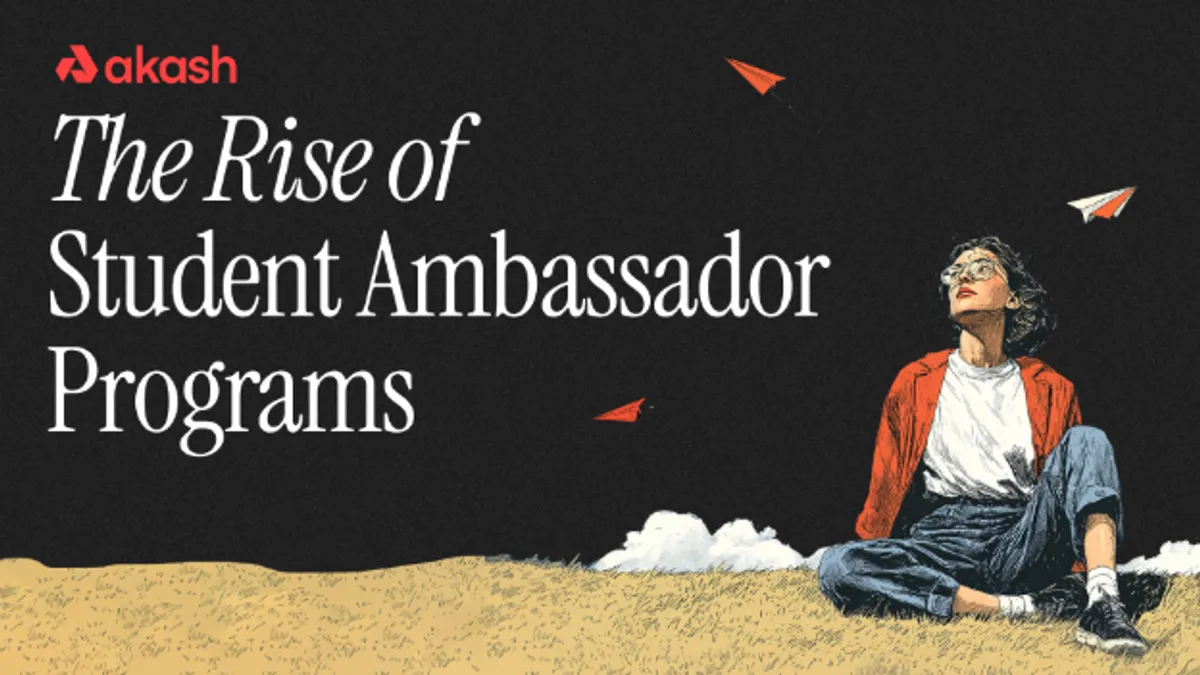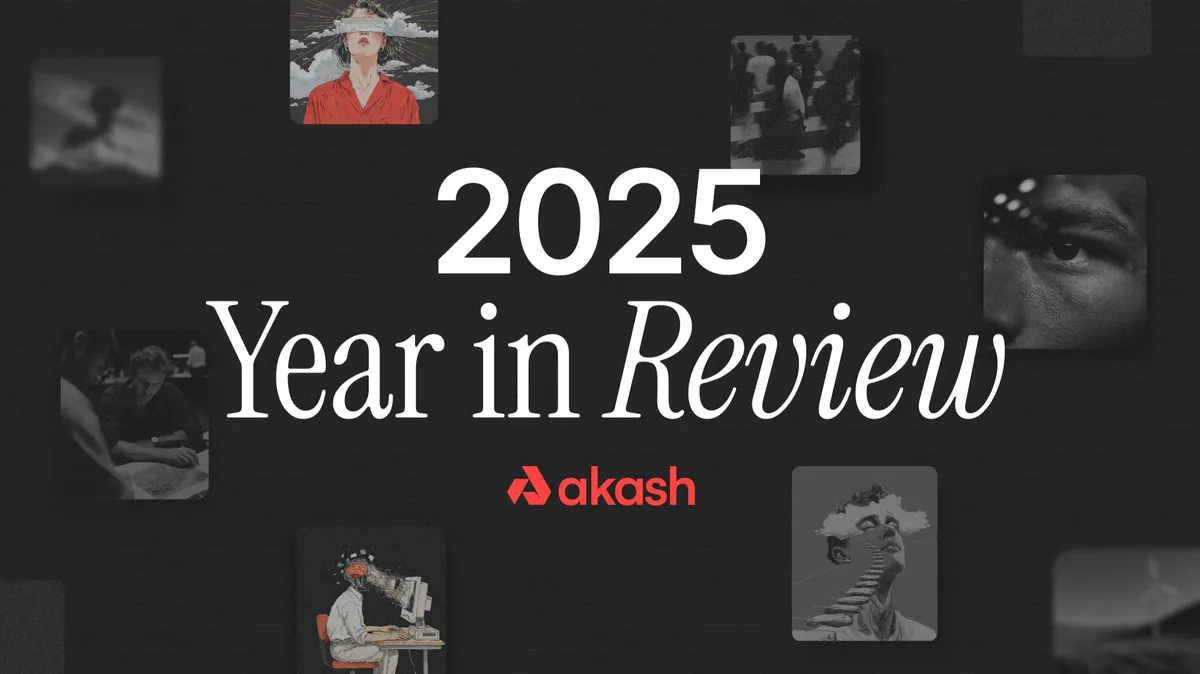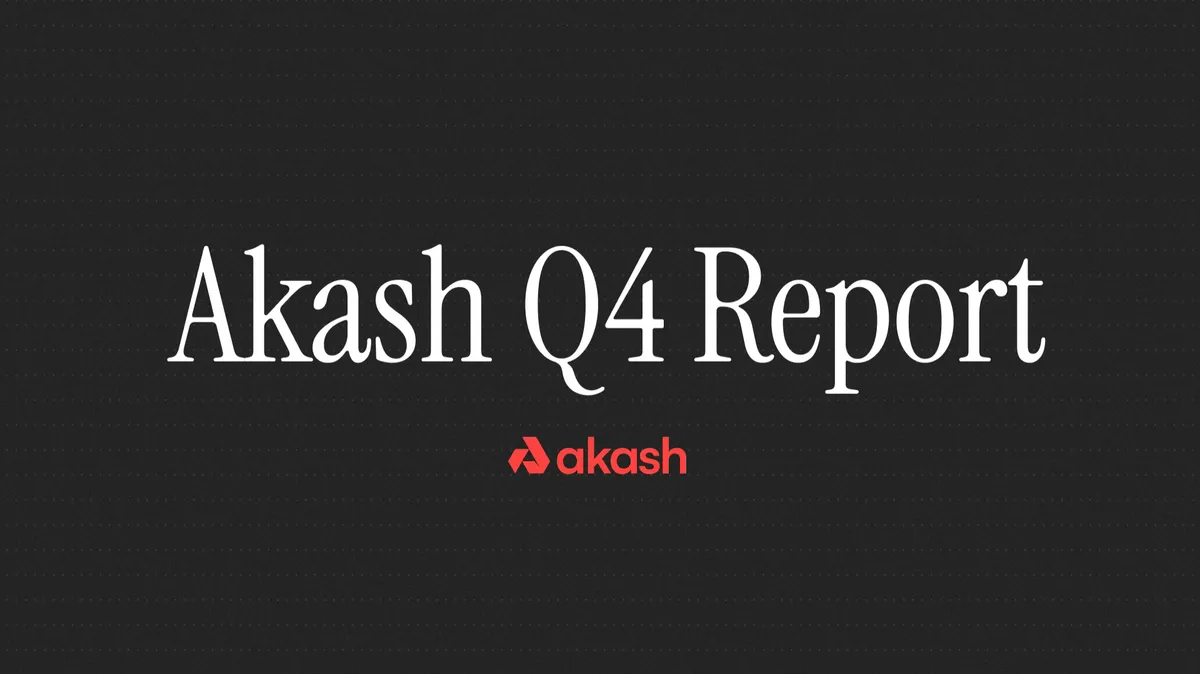
Akash Weekly with Greg Osuri is our weekly community call hosted on Twitter Spaces. Each week, we cover the latest news and updates from Akash Network with our CEO, Greg Osuri.
Follow Akash Network (@akashnet_) on Twitter to get notifications for all future Akash Weekly events. We’re live every Wednesday at 8 AM PT. Tune in next week for the latest from Akash and conversations with special guests!
Sign up for our newsletter to stay up to date with everything Akash Network.
On this Akash Weekly:
- Greg Osuri, CEO & Co-Founder of Overclock Labs (creators of Akash Network) [@gregosuri]
- Todd Garrison, Founder of Block Pane
- Oskar Jepsis, CEO of Alter
Our topics this week:
- Developing decentralized applications with Block Pane and Alter.
- The reason that many developers default to web2 hyperscale cloud providers, and how to make the jump to web3.
- The tools that web3 needs now.
News & Events
Upcoming Events
- Come meet the team behind Akash Network in person at Messari Mainnet in NYC from September 21-23. Use code AKASH300 at checkout for $300 off of your ticket purchase.
- Adam Bozanich (Co-Founder of Overclock Labs) and Adam Wozney (Head of Community at Overclock Labs) will be speaking at Cosmoverse in Medellín, Columbia between September 26-28.
The Ethos of a Validator
Todd provides his background as a validator and his journey to Cosmos. From both his and the community’s perspectives, a validator is responsible for more than just making blocks. There is a responsibility to make the ecosystem better. One way to do that is by building tools that seek to answer a question.
For Todd, the genesis of his Cosmissed tool came from the question: “Why are people missing blocks?”
From this question, many more arose as the tool evolved. He notes that asking these seeking questions brings forward valuable information that makes it easier to build for the right audience. Greg agrees, having built many apps that started as a desire to fulfill a personal need. He says that even years later, he finds many of those apps very useful, and nostalgic in a way. Sometimes, those apps end up finding a wider audience.
Why Do Some Developers Continue to Choose web2 Cloud Providers?
This is an interesting and complex topic that has been brought up by guests on previous Akash Weekly segments.
The answer, according to Todd (and echoed by previous guests), is that hyperscale cloud providers are familiar to many developers—who often have deep experience with these platforms. Even though these legacy services may not be the best fit for certain projects, some developers continue to return to what they know.
But this is changing. Many developers are beginning to run their nodes and applications on decentralized peer-to-peer marketplaces like Akash Network—often achieving the same performance for a fraction of the cost.
Todd mentions that he avoids running more than one validator in the same data center. This way, if there are outages, it reduces the impact of the problem. “This way I only have one problem, not six,” he says. This is one way that developers can begin to spread out risk and achieve a semblance of decentralization. For those looking to achieve an even greater decentralization of their workloads, Akash Network makes it easy to deploy seamlessly across many different providers.
In addition, many developers have mentioned the addition of persistent storage on Akash Network as a key reason for moving more workloads over to Akash.
A Scalable, Private Infrastructure Layer
Oskar gives a run-through of Alter, which is a scalable, private infrastructure layer that supports web3 communities. They have focused on maintaining the highest security and privacy standards.
Alter is focusing on decentralizing its file storage infrastructure, and working on ways to give users the most choice in controlling the security of their data. They are also exploring options to work with Akash to offer users more control and sovereignty over their data and communications.
Managing to GDPR. Oskar notes that Alter is not subject to GDPR regulations because they do not process user data—as all the data that Alter works with uses E2EE (End to End Encryption). This not only reduces Alter’s regulatory burden but is also a function of the ways that Alter protects and preserves user privacy.
As Oskar notes, “web3 can only happen if we collaborate with each other. Otherwise, it is not possible to reach our common goal—which is a decentralized web space.”
Which Tools Does web3 Need Now?
web3 is currently highly dependent on Github, which is owned by Microsoft. This centralized service becomes a single point of failure if there are outages, or if takedown notices are issued. Cloudflare also has a significant concentration of websites and applications.
A major risk to the entire decentralization movement is the reliance on centralized cloud providers. Chainstack estimates that the top ten cloud providers of Ethereum nodes amount to nearly 60% of all nodes on the network. AWS alone hosts nearly 25% of all nodes on the network.
Reliance on centralized infrastructure poses significant risks to the stability and sovereignty of all systems and networks that aim to be decentralized. Based on this data from the Ethereum network—an AWS outage would take down nearly a quarter of the entire network.
Akash provides the foundational layer that provides decentralization at the base layer. This opens the opportunity for developers to build applications on truly decentralized infrastructure, without having to sacrifice sovereignty by defaulting to hyperscale providers.
Q&A
Q: Are there plans to launch incentive programs with AKT?
We will have future plans to launch incentives, but there are no current plans. We are focusing on revamping our AKT tokenomics.
Check out the full recording of this Akash Weekly on our YouTube channel.


